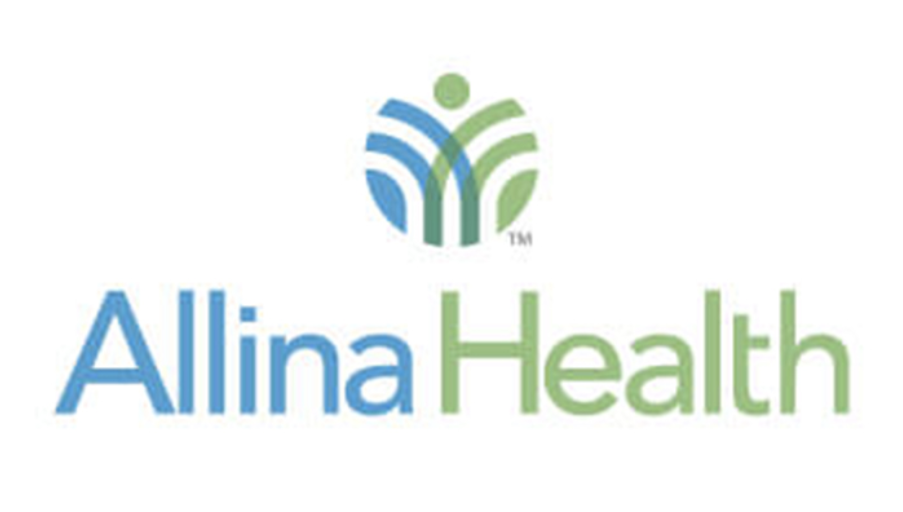
Allina Health
Allina Health is dedicated to the prevention and treatment of illness and enhancing the greater health of individuals, families and communities throughout Minnesota and western Wisconsin. A not-for-profit health care system, Allina Health cares for patients from beginning to end of life through its 90+ clinics, 11 hospitals, 15 pharmacies, specialty care centers and specialty medical services that provide home care, senior transitions, home oxygen and medical equipment, and emergency medical transportation services. Learn more at allinahealth.org.

When a 2010 leadership mandate required Allina Health to reduce operational costs by 11 percent, the health system’s first response was to search for potential cost reductions within purchased services.
This mandate was issued largely in preparation for Allina Health’s efforts to become a pilot accountable care organization, and it proved a challenging target to reach. Ultimately, the mandate led to opportunities to further improve patient care and to streamline hospital efficiency.
SpecialtyCare had successfully provided perfusion and clinical technician services for Allina Health since 2002. However, to help ease the financial pressures the system was facing, the two entities hit the reset button on their relationship in May 2012, breaking down barriers to communication, opening up their books, collaborating on complete transparency, and becoming true partners.
One year later, this radically different relationship between supplier and health system has improved quality of care, maximized labor efficiencies, and saved Allina Health nearly $1 million. This new partnership is just getting started.
An Out-of-the-Box Solution
While SpecialtyCare certainly wanted to do its part to move Allina Health closer to its goal of an 11 percent reduction in costs, the supplier’s margins did not allow for that much reduction. Together, SpecialtyCare and Allina Health began thinking outside of the box for a solution that would meet Allina Health’s need for cost reduction while allowing SpecialtyCare to maintain its long-standing client relationship.
Previously, Allina Health and SpecialtyCare worked under the traditional procedure-based fee model for services. Ginny Borncamp, Allina Health’s director of strategic sourcing and contracting, said, “The part that was difficult for us was not knowing how much SpecialtyCare spent for staffing, supplies and equipment and if there was any way that we could cover supplies and equipment at a lesser cost.
“In an effort to reduce costs, we did consider bringing perfusion and clinical technician services in house, but SpecialtyCare quickly proved why their managed services were the best option clinically, operationally and financially.”
Borncamp also noted, “SpecialtyCare made a commitment to us that, together, we would investigate any services that they could potentially absorb with the same staffing level—or at least gain some additional economies of scale if we could find some additional services they could provide. They really stepped up as a partner and took ownership for working together to help us optimize both costs and services.”
Terry Voigt is the director of surgical, perioperative and anesthesia services at Abbott Northwestern Hospital, part of Allina Health. He viewed the situation from a different perspective: “For me, it was more about the quality of services that SpecialtyCare provided and continues to provide us, and that has never been in question. We’ve had the luxury of having their services here for years, and from a surgeon’s standpoint, each is extremely comfortable and confident with SpecialtyCare’s level of expertise. Their clinical competency certainly meets any standards that we have.”
Putting a Plan in Motion
SpecialtyCare offered a transparent model, sharing with Allina Health its costs for staffing, supplies and equipment.
The model included:
• negotiating a set fee for services above SpecialtyCare’s management costs
• conducting time-and-motion studies to set a baseline for SpecialtyCare staff proficiencies
• collaborating on supplies and purchasing through the entity that secures the best price
• improving clinical processes
• reducing blood use
• maintaining consistent clinical and operational efficiencies
Jon L’Heureux, SpecialtyCare’s vice president of strategic accounts, said, “All of these steps are incredibly important as health-care providers and clinical support service suppliers continue to collaborate in the future.
“That means that we are completely transparent. Allina Heath knows that we’re making a reasonable and nfair margin and that we’ve collaborated on supplies and identified and improved upon operational efficiencies. This approach ultimately results in the best net price for the system.” The current state and future landscape of health care requires hospitals and suppliers to move to a more open relationships, control costs, improve patient outcomes, establish quality goals, and benchmark and report against those goals.
Quality is Job One
Both Allina Health and SpecialtyCare were clear from the onset that quality of care was the first priority. Benjamin Sun, M.D., chair of cardiac, thoracic and transplant surgery at Minneapolis Heart Institute at Abbott Northwestern Hospital, came to Allina Health from The Ohio State University in 2011. He admitted that, when he joined Allina Health, he was initially concerned about outsourcing important tasks such as perfusion and technician services.
“Obviously, I don’t have those concerns anymore, because SpecialtyCare is a high-quality, regionalized group that does cross-pollinate their clinical support staff,” Sun said. “But they are also consistent, and, because of its size and scope, they have the flexibility of platooning among the hospitals as needed. For example, when we expanded our ECMO [Extracorporeal Membrane Oxygenation] program, we instantly had a pool of very competent perfusionists who could expand and grow with us.”
Voigt said, “SpecialtyCare’s technicians now assist with cell saving and work with anesthesiologists to start regional nerve blocks. It’s great to be able to optimize the resources that SpecialtyCare already has here.”
The ability for them to shift around to assist as needed while maintaining a high consistency and quality is key. I’m at three different hospitals, and if someone fills in for a perfusionist who’s on vacation, it’s absolutely seamless. As the physician, you don’t even think about it. They’re an extremely well-run organization that takes the worry out of perfusion and clinical technician services. It’s cost-effective, and it’s professional.”
— Benjamin Sun, M.D.,
Chair of cardiac, thoracic andtransplant surgery
Minneapolis Heart Institute
Sharing Best Practices
In terms of sharing and implementing best practices, Allina Health has benefitted from the fact that SpecialtyCare’s clinical associates also work with other hospitals. “Though they cover so many institutions, their scope of practice is consistent,” Sun said. “They can look at the aggregate of all their coverage in terms of priming volumes, transfusion rates, pump times, etc., and the data they accrue as a result is invaluable.”
“SpecialtyCare can show us the (blinded) hospital with the lowest transfusion rates, and that then becomes our target. Additionally, they can tell us about the processes they have in place at that institution. We can then put some of those practices into place to help us further improve quality and the delivery of patient care.”
SpecialtyCare’s staff also identifies potential improvement areas within Allina Health, according to Jennifer Carlson, the manager of sourcing and contracting in supply chain management at Allina Health. Carlson said, “Operationally, they’re working with us in a different way, bringing opportunities forward for better processes because they see what’s happening in our procedural areas and in the OR. It’s great to think of SpecialtyCare as a more strategic relationship, and we rely on them for their clinical expertise to help us continue to move forward.”
Savings and Quality Improvement
SpecialtyCare and Allina Health work together to continually increase productivity and control costs while adding services such as an expanded ECMO program, ECMO transport and point-of-care lab testing.
While it is still early, according to Carlson, the transparent partnership with SpecialtyCare allows Allina Health to satisfy the requirements for becoming an accountable care organization. “This affords us the opportunity to do a better job of charge capture, which will result in more accurate patient billing,” she said. “It also allows us flexibility because we’re doing things in more of an à la carte fashion in this contract, allowing us to direct consumables to our more strategic partners, assuming the products are acceptable and transferable to the SpecialtyCare staff.”
Savings achieved in the first year include:
$282,500 in blood reduction, with 0.41 fewer units of packed red blood cells used in the operating room and 0.68 fewer units used overall
$275,000 in additional value in ECMO monitoring hours (a 200% increase from the previous year)
$136,000 increase in hemodynamic monitoring and other tech services (a 20% increase from the previous year)
$90,000 increase in intra-aortic balloon pump monitoring hours (2,600 additional hours)
$71,000 in supply cost reduction
$68,000 in growth of autotransfusion procedures (10% increase)
$46,500 in additional value from a 3% growth in open-heart procedures
“We’re in This Together”
The success of this agreement hinges heavily on one word: trust. SpecialtyCare trusted Allina Health enough to take the unusual step of opening itself up to a valued customer. Now, with each passing day, Allina Health increasingly trusts SpecialtyCare as an essential partner.
Dirck Rilla is SpecialtyCare’s onsite manager for perfusion services and a member of Allina Health’s transfusion committee who attends all related meetings and work groups. Voigt praised Rilla when he said, “It was natural for him to be a big part of transfusion services because SpecialtyCare is the expert, and this is what they do, and Dirck provides valuable feedback and ideas. Not having him at the table would seem strange because his team is so integral to many of the work processes and care that’s delivered here. All of SpecialtyCare’s employees are so embedded in our daily operations that many folks in our organization view them as our own staff. There is an overall feeling that we’re in this together.”
Sun agreed wholeheartedly: “There is a belief that if employees work for your organization, they’re more accountable to you. That’s simply not the case with SpecialtyCare because they behave and are as responsive as if they do work directly for us, yet we have the flexibility of growing and flexing when we need to. Oftentimes, when you contract with a supplier, you wonder if you’re going to receive that same level of ownership and service. With SpecialtyCare, we don’t have that worry.”